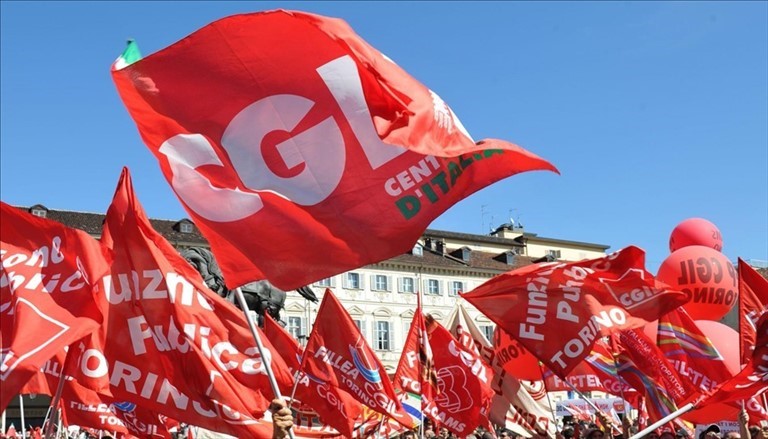Strikes, this is how the Guarantor debunks Cgil and Uil

What Paola Bellocchi, president of the Guarantee Commission on strikes in essential public services, said in a hearing in the Chamber
The Strike Guarantor unmasks the fake theses of CGIL and UIL on the general strike.
Here is what Paola Bellocchi, president of the Guarantee Commission on strikes in essential public services, said in a hearing in the Chamber, while the leaders of CGIL, Maurizio Landini, and Uil, Pierpaolo Bombardieri, criticized the political approach – according to them – of the Guarantor. Which instead, by law, cannot deal with general strikes.
IT IS NOT A GENERAL STRIKE, SAYS BELLOCCHI
But politics has nothing to do with it, it emerges implicitly from today's words of the Commission's leaders. Simply because the strike of 17 November proclaimed by CGIL and UIL is not a general strike. This is what the president of the Guarantee Commission Paola Bellocchi remarked in a hearing today in the Chamber. “Many categories are excluded,” he explained, “we had the interpretative problem that it wasn't a general strike. As it has been interpreted, the general strike concerns the generality of the categories". This is a “closed proclamation, it contained a series of excluded categories. It seemed to us – he added – that the conditions for a general strike did not exist. Thus each confederation could proclaim a general strike a la carte."
According to Bellocchi it is neither a general strike because "it includes a list of sectors" nor a national general strike "because it excludes a list of sectors which are then included in the regional proclamations. As it has always been interpreted and applied – he explained -, the general strike concerns the generality of the public and private work categories, the proclamation must be open. In this case the proclamation was closed because it contained a list of excluded sectors in which the fight against the government's economic maneuver was carried out by regional trade federations".
TWENTY STRIKE PROCLAMATIONS
“In each region – continued the president of the Guarantee Commission on strikes in essential public services – the fight against the government's economic maneuver will be made with two strike sections, one on the 17th which includes all public work and some private categories. The remaining categories that had been excluded from the proclamation of the 17th then organized themselves independently, we have 20 proclamations of regional strikes in a series of dates. From an interpretative point of view, it seemed to us that the conditions for a general strike were not met in such a structured proclamation."
“If we understood the notion of general strike in a merely conventional or subjective sense – he said again – from tomorrow every confederation would carry out a general strike a la carte. Everyone chooses the categories that are inside and those that are outside, this would have introduced a seed of instability into a type of strike that has already caused several problems for the Commission. By now the trade union panorama is full of acronyms, autonomous confederations, with a significant and notable number of general strikes. I was to ensure consistency and stability of the system. From a logical point of view – he concluded – it seems to me that a general strike as it has always been understood and practiced even by large trade union organizations is a great day of mobilization of all workers who all protest on the same day".
WHAT THE LAW SAYS
Law 146 of 1990 on strikes in essential services "never mentions the general strike", says Paola Bellocchi. “The general strike is made up of category strikes, each of which must apply its own sector rules in terms of notice, maximum duration of the first action, rarefaction and prohibition of concomitance. The law does not mention the general strike and to allow and facilitate its exercise the Guarantee Commission adopted an interpretative resolution in 2003. The Guarantee Commission may establish a prerequisite for application. We are not talking about the application of law 146. If this resolution did not exist we would apply law 146 but it would be more complicated to carry out a general strike because the ban on concomitance between alternative sectors that insist on the same essential public service would be enough to not allow it. It is a conventional discipline. As the Commission created it, it can interpret the conditions for its application".
Bellocchi underlines that the fact that it was not proclaimed by all the confederations did not enter into the Commission's reasoning. “The question – he explained – was generality. The proclamation is legitimate from the point of view of trade union freedom but does not fall within the interpretation of the 2003 resolution, we consider it a multi-sector strike".
This is a machine translation from Italian language of a post published on Start Magazine at the URL https://www.startmag.it/economia/scioperi-paola-bellocchi/ on Wed, 15 Nov 2023 13:48:06 +0000.
